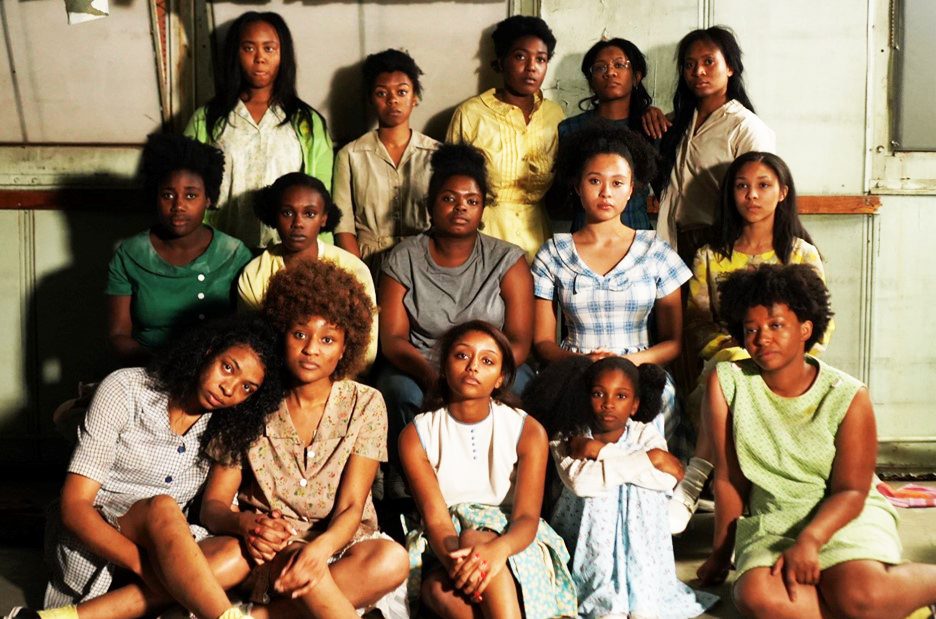
by Kia Shaun Walton
Celebrated television powerhouse Felicia D. Henderson takes on the film festival scene, debuting the inspiring true story, “The Rebel Girls.” Abducted by white police officers after protesting a racially segregated movie theater in Americus, Georgia, in 1963, 15 Black girls were illegally imprisoned in a Civil War era stockade for 60 days. Isolated from the rest of the world, their families denied any information as to their whereabouts and forced to endure the inhumane conditions of an extended kidnapping, these heroic young women harnessed the power of imagination to fortify their spirits and minds against ruin. “The Rebel Girls” portrays their real life story.
The short film was accepted into the Cinequest Film Festival and won a jury prize, and Henderson, writer, producer and director, hopes to garner enough attention and funding for the project to turn “The Rebel Girls” into a full length feature film and television series. She asserts unequivocally, “This story should be told. It is a story that I think is for everyone on some levels. It is a story that is told from the point of view [of the girls] who not only survived but thrived – not from the [point-of-view of the] oppressors, the kidnappers, and the captors.”

This film departs from what some consider a tiresome narrative of perpetual Black struggle in America to an honoring of mental, emotional and spiritual resolve. Henderson shares, “It’s about the relationship between [the girls]. It’s around sisterhood and strength and hope and faith … They sang to each other. They talked about their life goals and careers, and that’s the stuff that keeps you alive … it’s also about the resilience of family because their families never stop searching for them.” She finishes, “[In] a mainstream society that is banning books that tell our stories … we can’t be tired of telling our stories. It’s about the manner in which we tell them. It’s about how we enter those stories.”
Prior to production, Henderson entered the story in her own way with Carol Barner-Seay, one of the women who survived the kidnapping over six decades ago. They visited the stockade where the girls were held for two months. At the time, it looked similar to its condition in 1963 when the girls were abducted: broken windows, dirt floor, an air of deliberate despair. Henderson recalls feeling “everything in the space was overwhelming,” continuing, “I had read so much and I’d heard about no working toilet and a shower that didn’t work and being fed raw, spoiled meat and [a] rattlesnake thrown in and … being threatened with rape and murder.”
It was their strength, however, not their suffering, that brought Henderson to tears. She explains, “When I went inside, the fact that they never let them have their souls, that they never let them have their minds overwhelmed me. The power of them.” In the midst of her tears, Seay, an American hero by any standard, held Henderson and sang, “Amazing Grace,” an experience she says “I will never forget as long as I live.”
Henderson reflects, “[Their willingness] to fight like that [is] really directly related to why I get a chance to do what I do today.” She continues, “As a woman from an underserved community who is a content creator, an image maker, I am responsible for those images.” A proud auntie, she ponders, “What are the images I wanted [my nieces and nephews] to see? What am I putting out there that will make them stronger?”
Henderson, who also serves on the advisory board of Shero’s Rise, a non-profit that “empowers girls in underserved communities through educational programming and meaningful mentorship,” will hold a special screening for the girls they partner with. Not reduced to a Black female identity, but grounded in one, in “The Rebel Girls,” Henderson is “telling the story of our strength as Black girls and Black women – my Black women.”
In a variety of ways, Henderson’s Black women are represented on set, sharing insider facts that some family artifacts can be spotted by the careful observer: her sister’s Siamese cat light fixture; her grandmother’s typewriter; her own personal 1950s floor stereo. Still more, three of the characters are named after Henderson’s mother and two aunts. She was even able to procure an actual Jet magazine cover from that era.
A “studio baby,” Henderson reflects with sincere gratitude on the people who supported the homegrown production in all phases and aspects. “I called in 20 years of favors” from the industry’s leading professionals, she says. Working in the Radio, TV and Film Department at Northwestern University, the experience of leading a project without the protections of the biggest studios, Henderson believes, has made her a better professor.
Henderson, who was the creator of “Soul Food,” TV’s first successful African American one-hour drama, showrunner of the Netflix vampire drama “First Kill,” and co-executive producer on Marvel’s “The Punisher” and “Empire,” is known as “Black television royalty.” The funds, talent and support that rolled in likely have as much to do with Henderson’s record of excellence as it does the potency of the story itself.
“I am so in love with my people. I am so impressed with my people,” Henderson shares. If “The Rebel Girls” short film makes it out of the whirlwind film festival circuit having gathered the attention it deserves, this impressive, awe-inspiring American history will reach wider audiences for generations to come.
Kia Shaun Walton (she/he) is a freelance journalist and educator working in the Bay Area. Kia is committed to justice, integrity and community. Please direct any inquiries to kia@sfbayview.com.

 Store
Store



